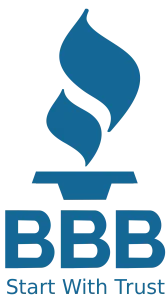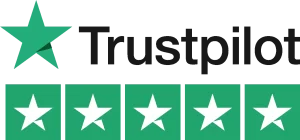It’s well known that small business owners are fixed for time. Amongst everything they have to handle on a day to day basis, they simply have no or little time to market their business. Consequently, most small business owners use marketing only when business is slow, and stop all marketing when business picks up again.
Marketing requires a continuous effort for best results. An effective marketing strategy will require minimum effort from you, and still help position your business throughout the year. Unfortunately, there is no magic spell to it. The type of marketing a business requires depends on the type of business or service and its audience. After all, marketing simply ties the customer and business together. Ask yourself the following questions before deciding on a marketing plan:
- What demographic is your customer base made of?
- Do you get more footfalls or are they online?
- Where do they look when searching for the product/ service you offer?
- Who/ What influences their buying decisions?
Marketing Offline
In the digital world, marketing offline can seem unnecessary. However, this can help you stand out from the rest of the crowd.
- Use your Community: Once you understand your demography, the easiest thing to do is connect with them through your local community. You can sponsor local events, distribute free samples, or even help out at charities.
- Create an Elevator Pitch: You should always be ready to market your business on the go. You never know when you may bump into a potential investor or customer, and talking to them in person about what you do can actually create a lasting impression. Most adults have an attention span of eight to ten seconds, and if you create a great pitch, you may be able to hook them onto your business.
- Networking: No, we don’t just mean Linkedin. Go out there, meet some people and shake some hands. Anyone and everyone can add value to your business, so attend conferences, meet different people and build a network. This will help you know the who’s who of your industry, and learn how you can be of service to others and perhaps they, to you.
- Collaboration: Collaborate with other businesses in the area or industry during events. It’s hard for small business to create sales or offers that don’t cut through your profits but connecting together with other businesses may let you put out attractive deals for customers. Do this during local holidays, fairs and other events to get the maximum outreach.
- Be an Expert: You’re an expert in your business so let everyone know. Sign up to Help a Reporter Out (HARO) and give journalists information and quotes to spread the word about your business. Give out speeches at local events and follow industry news. Portray yourself as a thought-leader in the business space.
Marketing Online
- Rank on Google My Business: Google My Business is the best way for local small businesses to attract local clients. When you add your business to Google My Business, all your Google business data is pulled into one central place; Google Maps, Google Reviews, Google profile, Google Insights, etc. It’s not at all hard to manage, once you’ve created a profile and updated reviews, Google handles the rest for you. If anyone in your locality searches for a business in your industry, your business can rank before even organic results.
- Content Marketing: Content Marketing is one of the strongest ways to market your small business. Paid advertising can help bring in short-term results, whereas content marketing can go the long run. Content marketing not only includes blog posts but all content media including videos, podcasts, images, etc. The perks of content marketing is simply this; the more content you put out, the more you register in the minds of your customers. Creating content can be a challenge, but luckily several agencies can handle this for you. And in case you aren’t able to spare the budget for one, you can always opt for a short-term financing option.
- Facebook Ads: Facebook ads are one of the best in social media for small businesses. This lets you do focused marketing only for your target group based on factors like age, sex, area, interests, online shopping habits etc. This system is also one that’s easy to use and isn’t heavy on the wallet.
- Social Media: Facebook, Twitter, Instagram and LinkedIn each target different range of demographics and each can be used optimally depending on your business. All content created can be shared across social media though this may be a time consuming process. However, several tools such as Buffer can schedule and post the content for you for a decided period of time.
- Email Marketing: Email marketing is proven to have the highest click-through rates. In fact, it is one of the easiest marketing techniques to use because it can run fully automated and reach out to a larger base of customers. The key here is to incentivize with valuable, key information that your customers will actually read, rather than deleting or sending to the spam folder. Email marketing has proven to have the highest conversion rates.
In the end, a marketing strategy can change from business to business, but every business needs one. Contrary to belief, most ideas don’t work in a jump but only as little at a time. Study your demographic and your marketing strategy options and experiment with various tactics and techniques. In case your business needs the help of an agency or paid tools, small alternative financing solutions can help you meet your requirements.









